Matthew Muresan
An Improved Deep Belief Network Model for Road Safety Analyses
Dec 17, 2018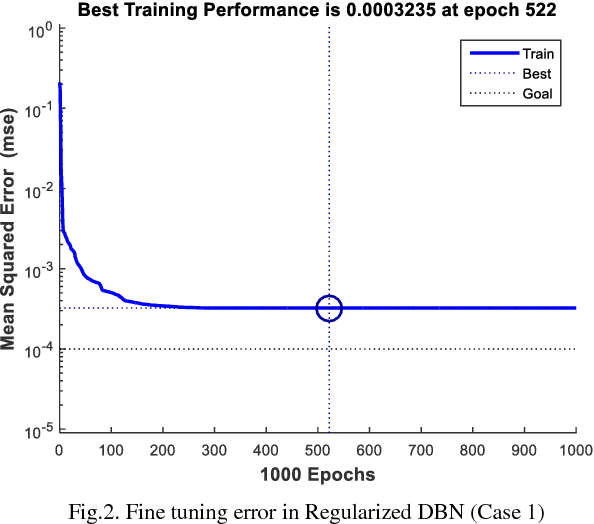


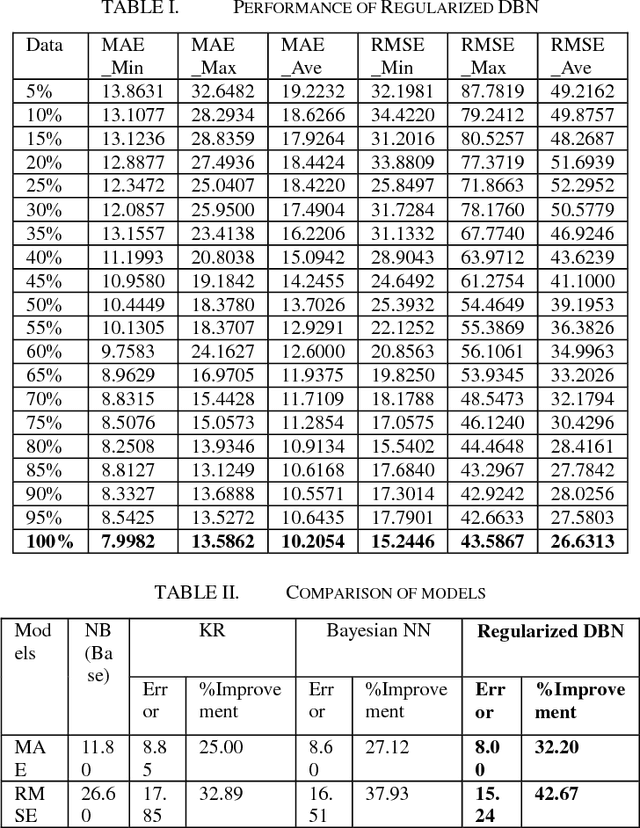
Abstract:Crash prediction is a critical component of road safety analyses. A widely adopted approach to crash prediction is application of regression based techniques. The underlying calibration process is often time-consuming, requiring significant domain knowledge and expertise and cannot be easily automated. This paper introduces a new machine learning (ML) based approach as an alternative to the traditional techniques. The proposed ML model is called regularized deep belief network, which is a deep neural network with two training steps: it is first trained using an unsupervised learning algorithm and then fine-tuned by initializing a Bayesian neural network with the trained weights from the first step. The resulting model is expected to have improved prediction power and reduced need for the time-consuming human intervention. In this paper, we attempt to demonstrate the potential of this new model for crash prediction through two case studies including a collision data set from 800 km stretch of Highway 401 and other highways in Ontario, Canada. Our intention is to show the performance of this ML approach in comparison to various traditional models including negative binomial (NB) model, kernel regression (KR), and Bayesian neural network (Bayesian NN). We also attempt to address other related issues such as effect of training data size and training parameters.
Winter Road Surface Condition Recognition Using A Pretrained Deep Convolutional Network
Dec 17, 2018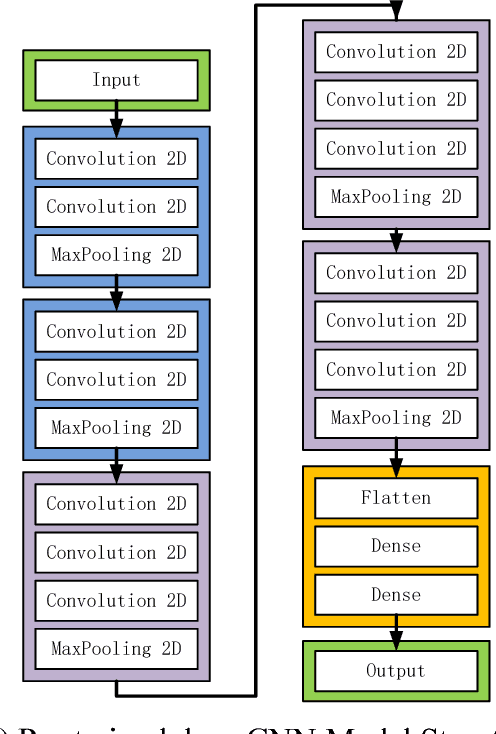
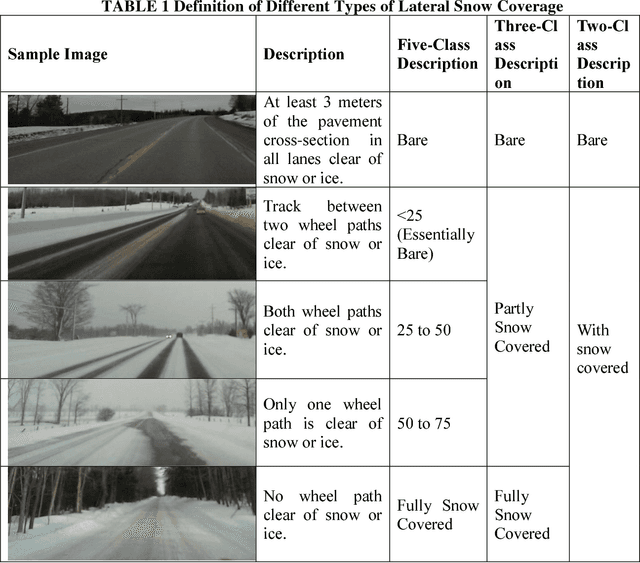
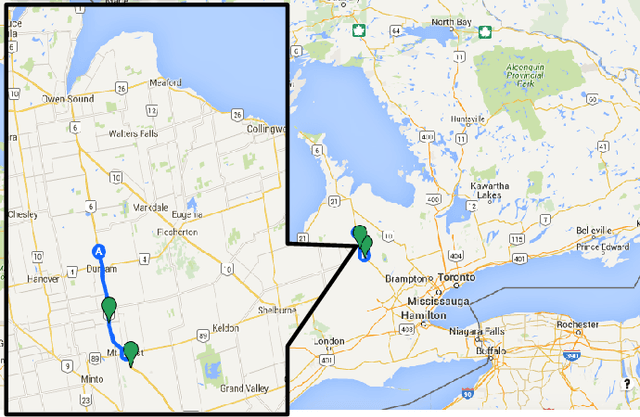
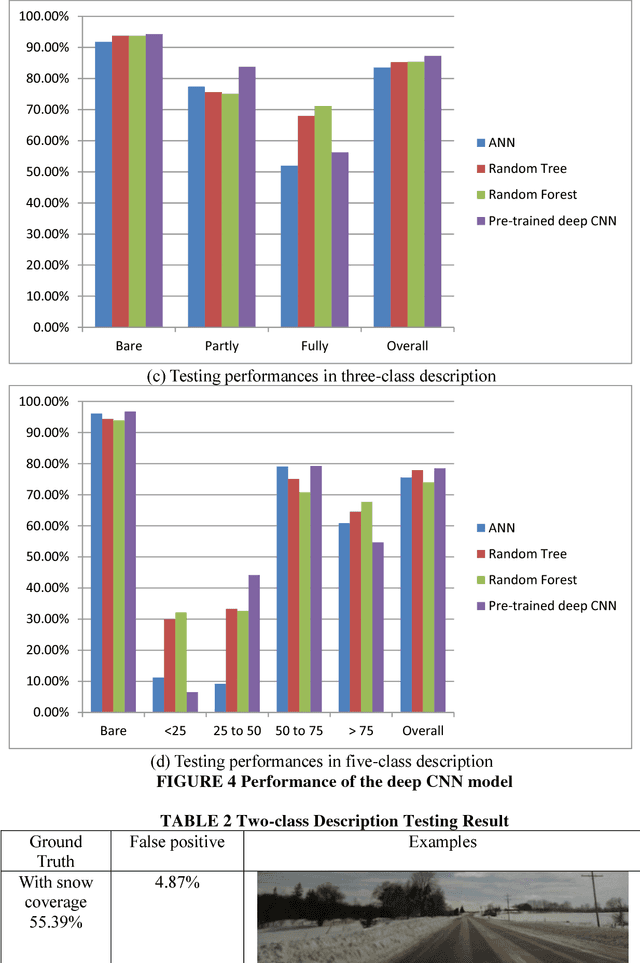
Abstract:This paper investigates the application of the latest machine learning technique deep neural networks for classifying road surface conditions (RSC) based on images from smartphones. Traditional machine learning techniques such as support vector machine (SVM) and random forests (RF) have been attempted in literature; however, their classification performance has been less than desirable due to challenges associated with image noises caused by sunlight glare and residual salts. A deep learning model based on convolutional neural network (CNN) is proposed and evaluated for its potential to address these challenges for improved classification accuracy. In the proposed approach we introduce the idea of applying an existing CNN model that has been pre-trained using millions of images with proven high recognition accuracy. The model is extended with two additional fully-connected layers of neurons for learning the specific features of the RSC images. The whole model is then trained with a low learning rate for fine-tuning by using a small set of RSC images. Results show that the proposed model has the highest classification performance in comparison to the traditional machine learning techniques. The testing accuracy with different training dataset sizes is also analyzed, showing the potential of achieving much higher accuracy with a larger training dataset.
 Add to Chrome
Add to Chrome Add to Firefox
Add to Firefox Add to Edge
Add to Edge